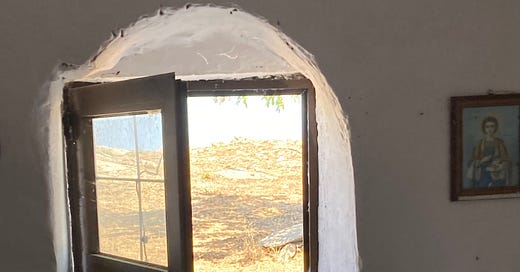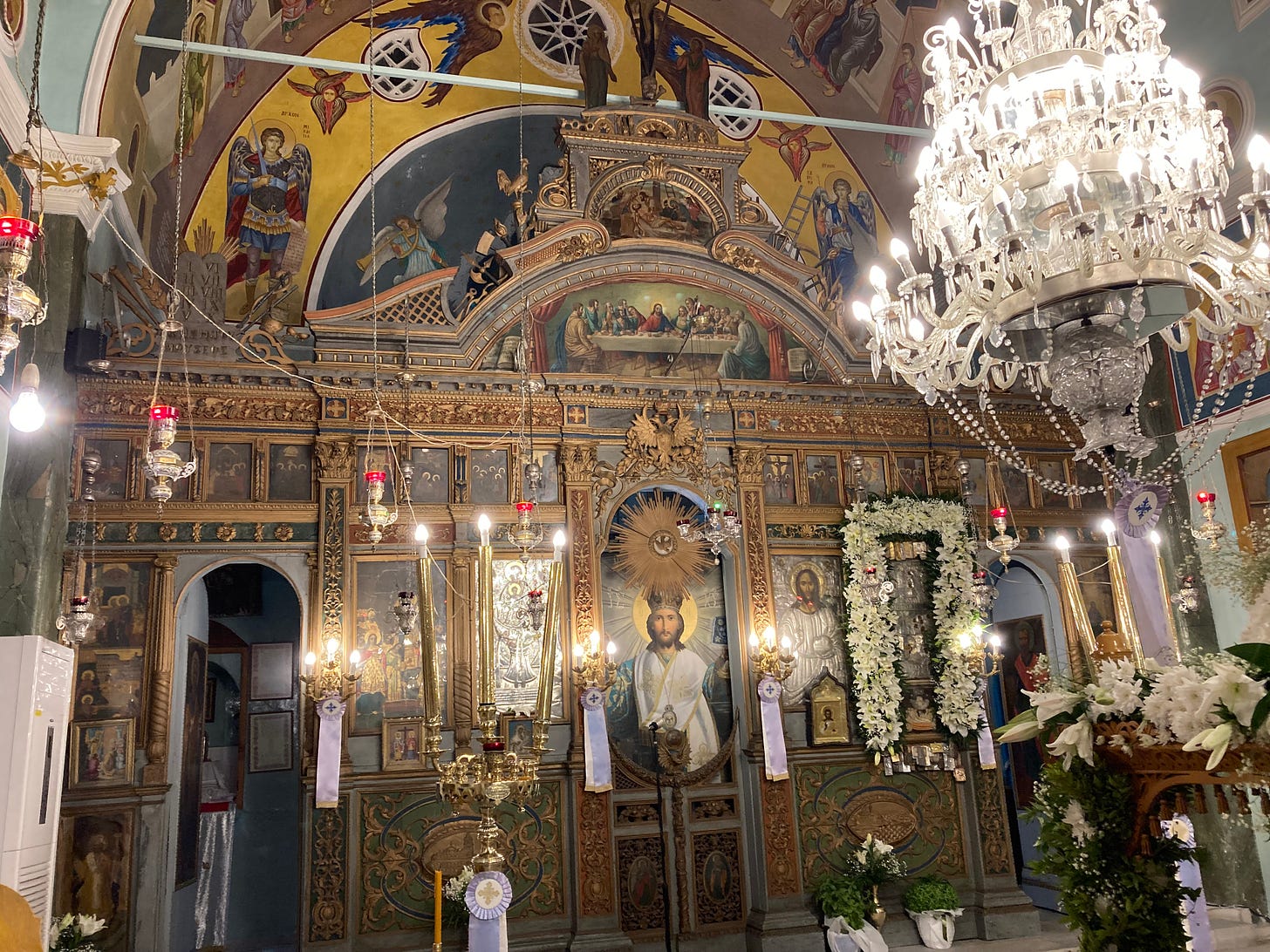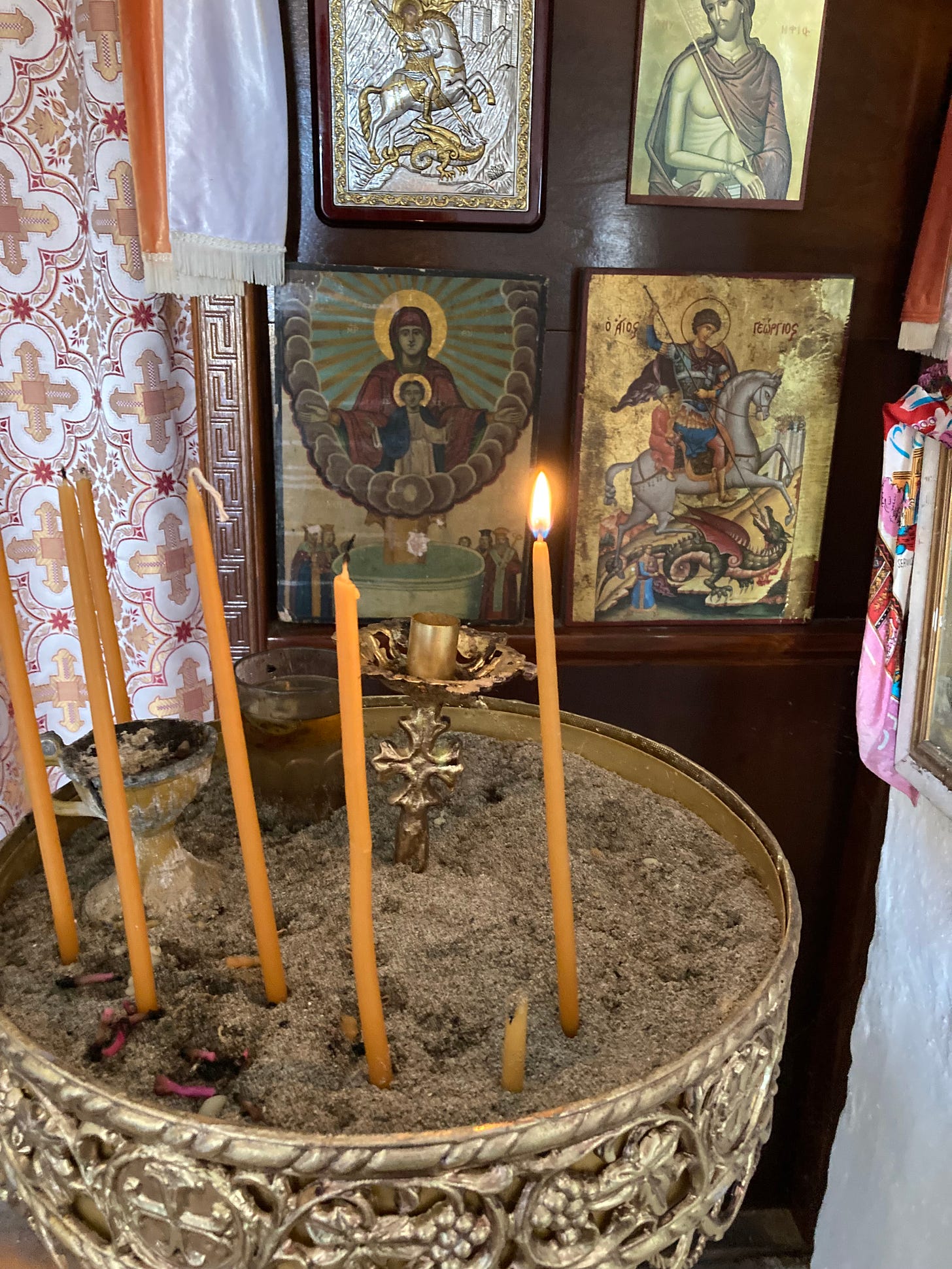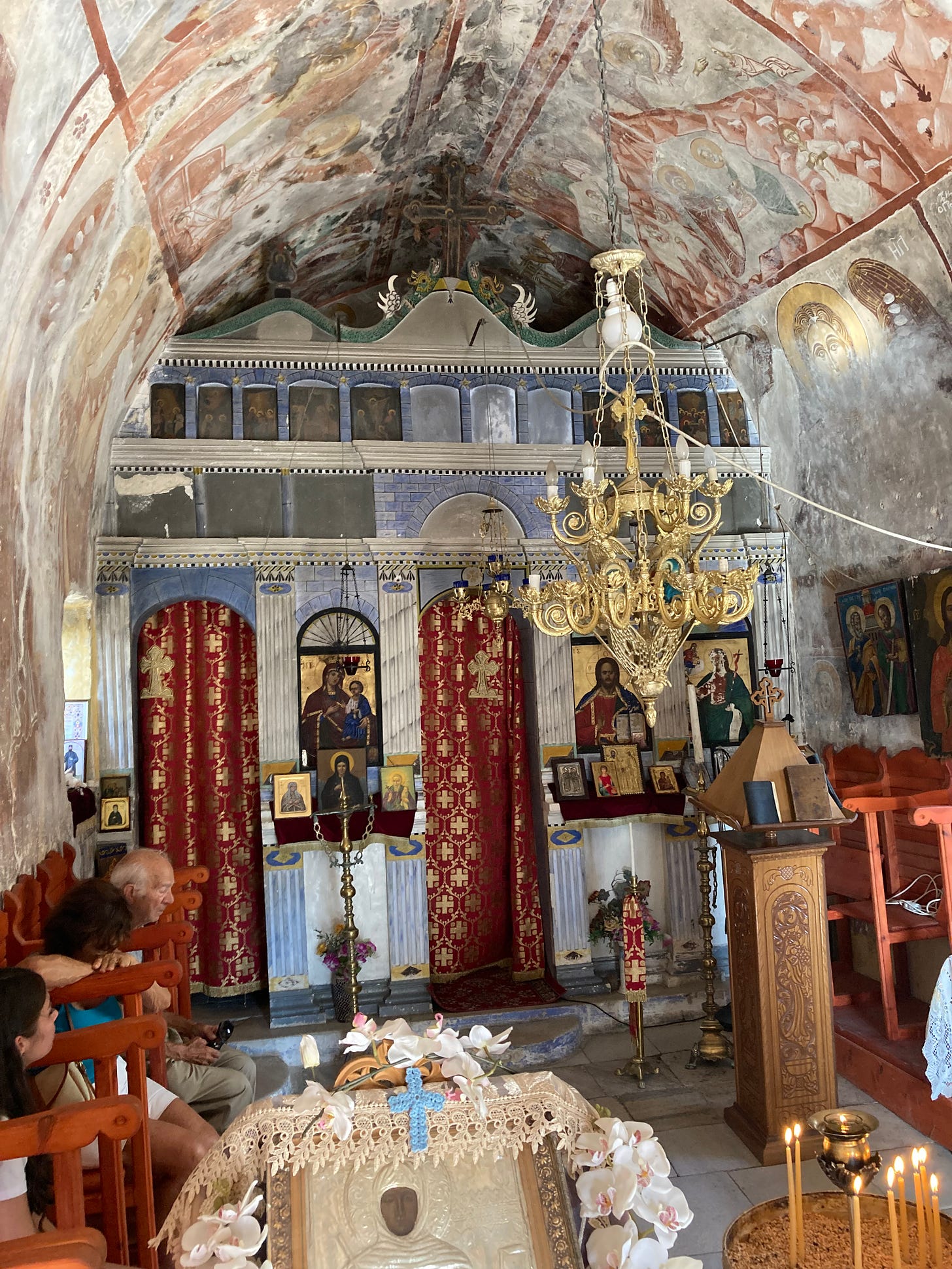if you’re interested in preordering a copy of cracks in pomo: the zine or in making a financial contribution, email stephenadubato at gmail dot com; if you’re in the NYC area, join our launch event on 7/28 at the Catholic Worker Maryhouse
They say you should take the zeal of a convert to a given religion with a grain of salt. Part of it is the honeymoon phase of their newfound beliefs. Their starry eyed condition blinds them to nuances and less than ideal realities that cradle-believers have come to understand with time. On the other hand, their beliefs tend to be mostly theoretical, as they haven’t had enough time to take root in their lived experience…to take on flesh and become earthy. For the person growing up in a religion, their beliefs are connected to people, places, and experiences, more so than abstract concepts.
I’ve noticed this to be particularly true for the so called “Orthobros”—a mostly online community of conservative reactionaries who convert to Eastern Orthodox Christianity because of their ideological disappointment with secularism, Protestantism, and (in the case of Rod Dreher) even Catholicism. Eastern Orthodoxy relies much more on rituals and mystical spirituality than does Catholicism, whose Roman form consists of elaborate and rigid conceptual matrices. The East is more comfortable leaving something as a mystery to be experienced, rather than feeling the anxiety to have to articulate fully the reasoning behind a given belief.
The other thing is that Orthodoxy remains very much tied to ethnic culture. Unlike ethnic Catholicism, whose parochial ties to a given ethnic group are haphazard and subject to change, Orthodoxy is ecclesiastically arranged around ethnic groups. It’s not just a coincidental reality. Thus the cultural component organically intertwines with religious experience. For a WASP from the Midwest who converts to Greek Orthodoxy, the fact that she didn’t grow up Greek is going to make it very difficult to enter into her new religion…even if the parish is mostly assimilated and the liturgy is in English.
On that note, I find that “cultural” Greek Orthodox Christians who don’t practice their religion seriously but go to church out of a sense of cultural obligation tend to have certain insights into the religion that converts who read books and blogs and watch YouTube videos extensively do not. Being able to explain the history and theology of Eastern Orthodoxy, and attempting to adhere to the precepts and practices intentionally, is very different from breathing the air of Orthodoxy from a young age. And ultimately, if Christianity is a religion of the flesh rather than of ideas/“the Book,” then the person raised in a given church community (especially an Orthodox one) has certain insights that the person who knows all the “ideas” doesn’t.
Ultimately, Jesus was a person, not an idea. And following him didn’t amount to articulating and adhering to all of his moral and theological teachings, but participating in a shared life, a communal life, even if you broke “all the rules,” the standard was more so communion, belonging, than adherence to principles. Surely this is true of all Christian churches, but the ritualism, spirituality, and ethnic component of Orthodoxy makes this more pronounced.
If you take the example of saint feasts in the Greek islands, you’ll see what I mean. The day begins with a 3+ hour long liturgy, followed by an evening of music, dancing, eating, drinking, and smoking, up until sunrise. The cultural component is a crucial way to celebrate the life of the saint, almost as much as the liturgical component. Those who are unfamiliar with the cultural practice lose something from the experience of understanding what it means to venerate the saints.
My point in writing this is not to say that non-Greeks (or Russians, Ukrainians, etc) should not become Eastern Orthodox, or are somehow less worthy. It’s rather to highlight a reality that is oft overlooked in this whole wave of Orthobro converts, and ought to be considered. By all means, continue on with your Akathist hymns and chotki. We must ultimately remember that faith—whatever it may be in—is something given to us, not something we we generate for ourselves.
The tie between religion and ethnicity could easily reduce faith to a set of routine cultural customs emptied out of their moral and metaphysical implications. And there’s something to be said about zealous converts who tend to place more value on striving toward sanctity and living missionary discipleship than do cradle-whatevers (especially ethnic ones). Surely, our free will is implicated, and we must all make a choice to say a wholehearted yes or no to the gift of faith…or to say “whatever” and go through the motions without really putting one’s heart in it. But in the least, ethnic religiosity saves us from the allusion that faith is something we “choose” for ourselves, as the result of our internet researching and moral effort.
$upport CracksInPomo by choosing a paid subscription of this page, or by offering a donation through Anchor. Check out my podcast on Anchor and YouTube and follow me on Instagram and Twitter.
photos taken in Ikaria.









The suffix “bro” attached to anything just seems like an attempt to trivialize a person or an idea. Part of that is an implicit sneer at anything male and particularly men who associate for a common interest. I wish the whole “bro” language would fade into history.